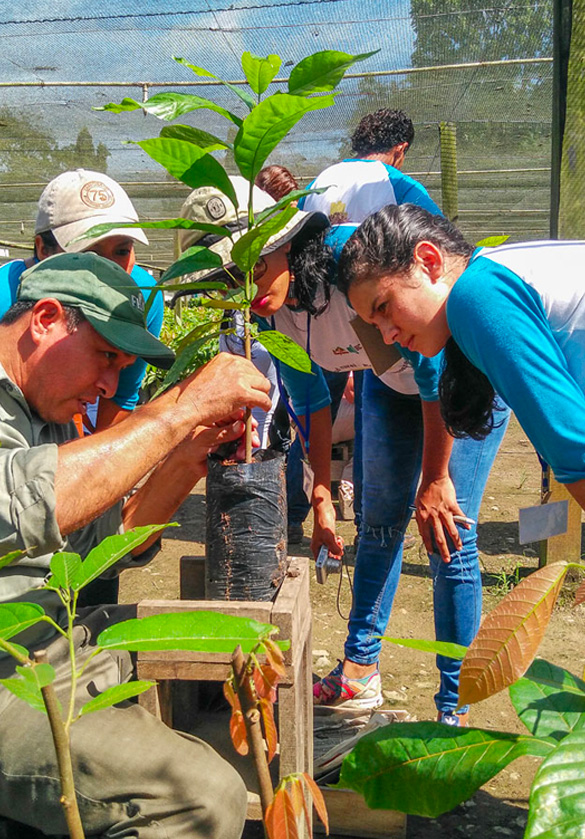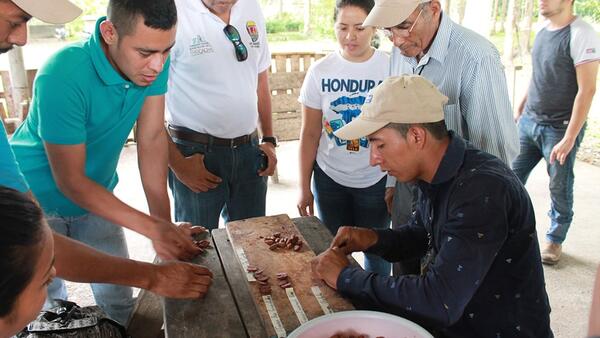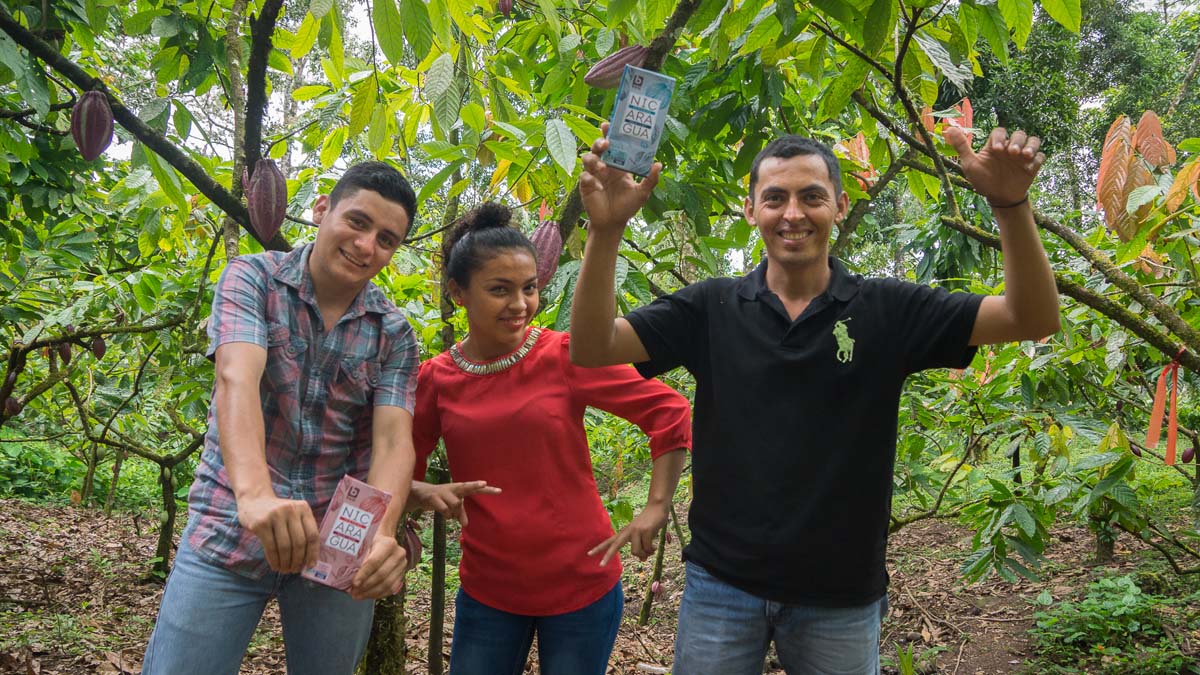Cocoa : young farmers ... you're up
A tried and tested partnership with good results
Collibri Foundation worked with VECOMA (Vredeseilanden/Rikolto Central America) for this project. It supports local farmers in Nicaragua through sustainable sector transformations for cocoa. The young people also follow a course in Honduras as part of their training programme. In turn they can share this knowledge with others, which is a great strength for this project.
You can read all about the results in this article but the figures speak for themselves :

74
young graduates
32
of these young people (50%) have become cooperative members
15%
of them have started their own plantation
344
participants in ‘peer-to-peer’ workshops
70%
of the young people trained have remained active in the cocoa sector
Increase in cocoa production
18% for La Campesina
57% for Ríos de Agua Viva
Learned a lot thanks to huge challenges
The aim was to develop young cocoa farmers' knowledge and skills in modern production techniques with an emphasis on economically sustainable agroforestry systems. The training was intended to strengthen and complement the experience gained in managing their cocoa plantations. The graduates could subsequently train other young people in their communities, thus ensuring the impact of the project.

During these five years, the project faced several major challenges :
- A turbulent political climate ahead of the presidential elections in Nicaragua in November 2021, which forced us to postpone the peer-to-peer workshops.
- A new migration wave from Central America to the US, coupled to this political instability : some of the staff of the two cooperatives left the country as did some of the students.
- The corona epidemic : the vaccination planning and documentation process caused delays in allowing students to travel to Honduras.
- Poverty remains high : 44.4 % of the population lives in poverty and 8.9 % even in extreme poverty. They are looking for a better future and therefore often migrate.
- Young people have few prospects due to the lack of economic independence. They're not yet able to take control and be entrepreneurial.

Concrete new short- and long-term goals
There's a method behind how these challenges are being tackled. Concrete figures are assigned to each objective and the working method has also been well thought out.
1. Entrepreneurship and ownership
Young people are trained to be entrepreneurs. They receive advice and financial support but the aim is for them to run their own businesses. The aim is 10 new companies of young entrepreneurs employing about 30 young people. The new company directors will be involved across the whole chain and all decision-making bodies.
2. Technical skills and soft skills
Training remains important in that both technical and soft skills are further developed. This will allow them to cultivate sustainable cocoa, diversify with other products or work with digital tools. They'll also learn the tricks of the trade in terms of leadership, teamwork, assertiveness and communication.
3. Investing in networks
The young people and their enterprises will be embedded in a network where they can share their knowledge with other young people in the region. This makes them part of the active economic population and means they'll be less likely to migrate.
With this project we reach :
40
young cocoa farmers
30
young entrepreneurs and employees
120
young people trained in sustainable production techniques

